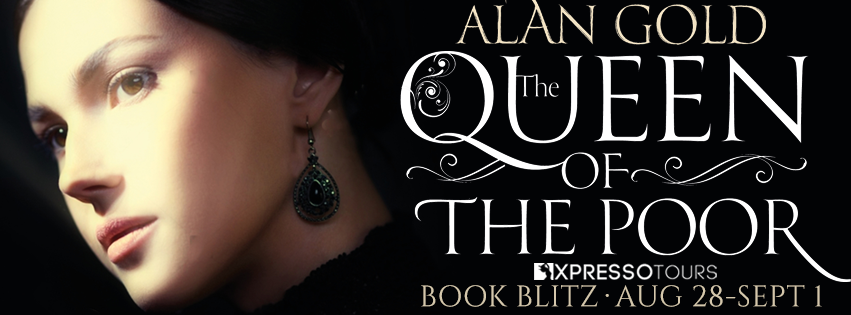Spotlight: The Queen of the Poor by Alan Gold
/Publication date: August 9th 2023
Genres: Adult, Historical
Synopsis:
Angela Burdett-Coutts was a wealthy woman who used her money, class and prestige to make a tangible difference for those less fortunate. She would become one of the most outspoken and dedicated philanthropists of her day. Throwing herself into the causes she valued the most, her charity work became renowned, earning her recognition from none other than Queen Victoria herself.
Coutts the bank was founded in 1692 but really took off when Thomas Coutts took over at the beginning of the 19th Century. He made a fortune, and left it to his second wife, 40 years younger and an actress. When she died, she left it all to Thomas’ granddaughter, Angela Burdett-Coutts.
Suddenly, Angela became the second wealthiest woman in England after Queen Victoria. She had to hire bodyguards to keep fortune hunters away. But because of her wealth and also because her father was a radical politician, she moved in the most interesting circles of Victorian society, where she met and has numerous affairs with famous people, like the chemist Michael Faraday and many others including Charles Dickens and the Duke of Wellington.
She caused something of a scandal with her radical lifestyle, but because of her wealth, and the fact that she spends most of her money on charity, opening schools for impoverished children, helping Dickens with the housing for the poor, housing prostitutes and getting them off the streets she’s almost beyond criticism…. until, at the age of 66, she caused absolute shock and outrage, because she chose to marry her 29-yearold secretary called William Lehman Ashmead Bartlett. Whilst this in itself does not appear particularly shocking, as he was, like her father, a Member of Parliament, the astonishing age gap left society aghast. Whilst she was sixty-seven, he was just twenty-nine years old.
Excerpt
This excerpt provides an insight into society at the time and the controversy Harriot Mellon Coutts legacy made.
Sir Jonathan walked to the large desk at the front of the room and sat in the chair. When all were seated, he took a sip of water from a glass, and said, ‘Ladies and gentlemen, Her Majesty the Queen has asked me, as Attorney General of the United Kingdom, to read this last will and testament of the late Duchess of St Albans.’
As he tore open the envelope, there was a buzz of conversation, not about the contents of the will, but that this man was the most important law officer in the land, and the queen herself had sent him.
He opened the will, straightened it, and began to read the words which had been dictated some three months earlier. It was short, just three pages, and took him only nine minutes to complete. By the time he had finished, the assembled company were in a state of utter shock.
Sir Jonathan glanced over to the family solicitor and whispered, ‘Is there something untoward happening, Mr Charles?’
In an undertone, the family solicitor whispered, ‘No errors, Sir Jonathan. When I drew up the will for the duchess, I told her that there would be some consternation among her relatives. Especially the brother of the young woman who has become the major beneficiary. I warned the duchess that there would be anger, but she merely smiled and said “good”. I fear, Sir Jonathan, that this is the consternation she was hoping for.’
Buy on Amazon
About the Author
Alan Gold began his career as a journalist, working in the UK, Europe, and Israel. In 1970, he emigrated to Australia with his wife, Eva, and now lives in St. Ives, Sydney, where he divides his time between writing novels and running his award-winning marketing consultancy.















































